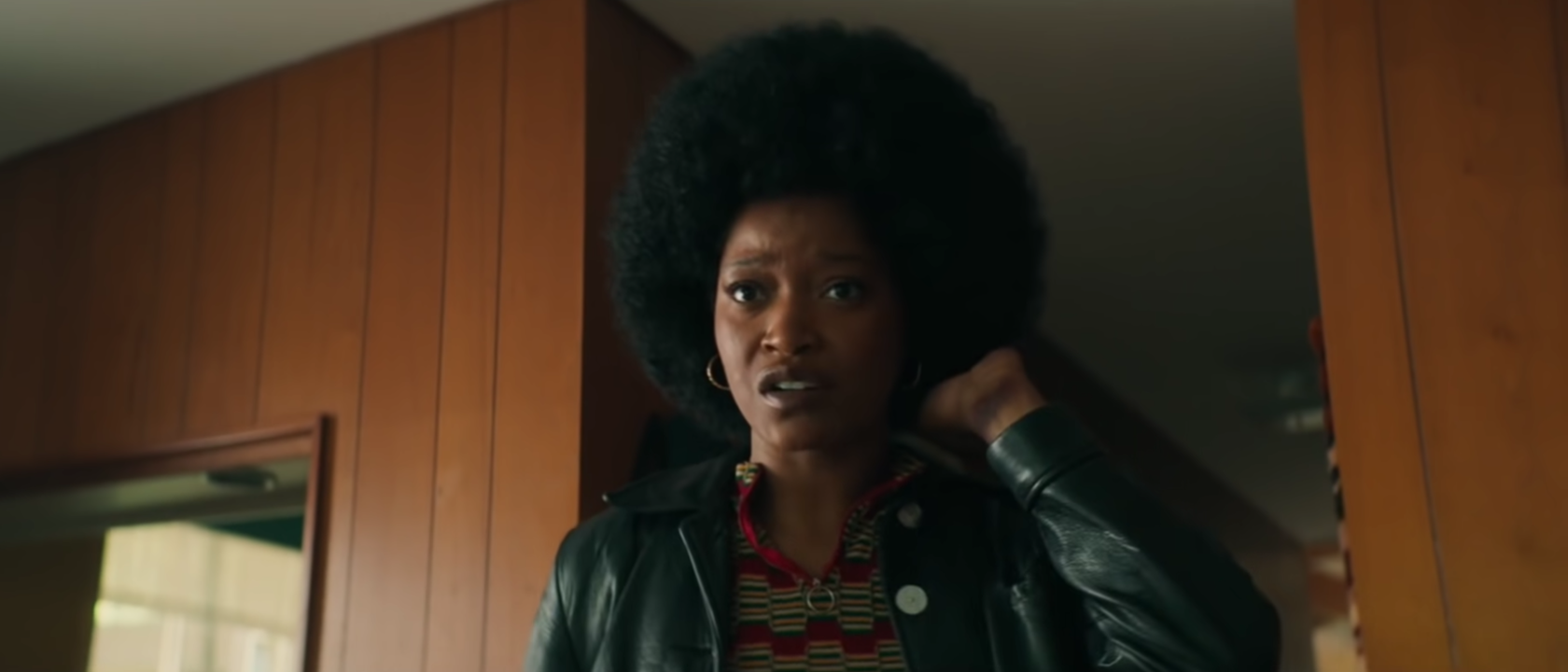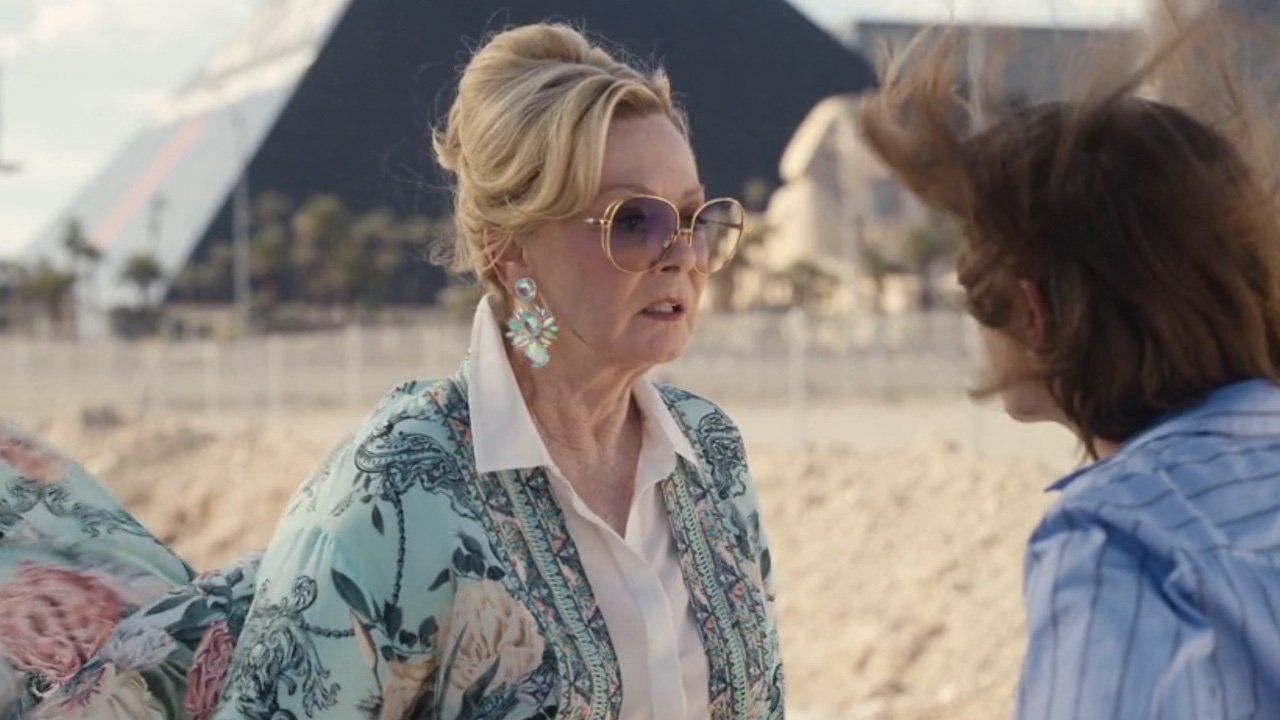Since Keke Palmer’s time as the young lead of Akeelah and the Bee and as a child actress on Disney Channel and Nickelodeon, she has long shown star power, but continues to be an underrated talent among her peers. With her new film Alice, it’s clear Palmer is ready and already a leading woman. While Krystin Ver Linden’s directorial debut may not end up being the best 2022 movie to demonstrate this fact with the world (Jordan Peele’s Nope is now just a few months away), the revenge indie is worth the 100-minute ride, mostly for the star's performance.
Alice premiered at the 2022 Sundance Film Festival at the top of the year, and early reactions compared it to one of 2020’s worst-received movies, the Janelle Monáe-led horror flick Antebellum, due to their shared subject matter. But that correlation feels misguided. Krystin Ver Linden’s film is not a horror movie about slavery; it’s a period revenge piece that pays homage to Blaxploitation films of the ‘70s and reckons with undercurrents of racism in our society despite our world's forward movement through pop culture and social and political movements. Alice is, however, a film that fights an uphill battle to live up to its wildly rich concept.
Keke Palmer carries the deep emotions of Alice through a career high performance.
Keke Palmer, known best for her bubbly personality and joke-cracking (recently as a standout in Hustlers), plays the quiet titular character in a mortifying situation as one of many slaves living on a plantation. The early scenes of Alice are uncomfortable, as she is witness to the inhumane treatment of the other Black people of service to their owner, Paul Bennet (Jonny Lee Miller). The movie is brutal in its depiction of the barbarous experience working at a plantation as a slave must have been, but respectful in its attempt to not be gratuitous – turning the camera in most instances when things get too graphic.
In one telling sequence early on for Keke Palmer’s Alice, she comes across a copy of Anna Karenina and turns the cover next to her own face. It shows that Palmer plays a woman not given an identity who seeks to understand, but doesn't have the tools to uncover her place in the world. That is, until the narrative's inciting incident begins.
After an altercation with Paul, Alice is able to run away, and through her eyes we discover that outside world is not pre-Civil War America – she’s been living in the 1970s all along. Viewers get to experience the protagonist's understanding of her destitution as she quickly finds herself in a society where the Black Power movement has taken flight and she can look up to icons of the era like Diana Ross and Pam Grier and take inspiration from them for revenge against her former captor.
Krystin Ver Linden plays it safe with dialogue and direction despite a bold and stylish concept.
The main issue with Alice is the script is a bit rough around the edges. Keke Palmer's character may be a shy protagonist, and understandably so given her traumatizing upbringing, but stiff dialogue throughout can cause the movie to lose some steam. There seems to be plenty of room for the small cast to explore the story in a deeper and more refined way, but the film doesn’t get there because the script doesn’t feel fleshed out enough to delve into those moments.
Additionally, there’s a similar feeling about the direction. The story of Alice feels primed for some incredible cinematic moments, especially within its fish-out-of-water tale that takes its viewers to ‘70s Georgia, and Blaxploitation influece, but it never quite reaches its potential.
That being said, Alice was not made with the budget of Quentin Tarantino’s Django Unchained or Spike Lee’s BlackKklansman. It’s Krystin Ver Linden’s first feature as a writer/director. That in mind, Ver Linden shows incredible promise and vision. She has great instincts for visuals and allows the movie to be guided by the emotional journey Alice is on in the story. This does have a downside – for example, Frank, the man played by Common who acts as a bridge between Alice’s reality and the ‘70s, is far too much of an internal character to have a memorable role in the film that may have strengthened Alice further.
Despite its uneven tone, Alice is an effective exploration of a true story.
The filmmaking may not be top-tier, but one element of Alice allows for the movie to remain grounded through it all: when the movie starts, a title card reads “inspired by true events.” One example of inspiration for the movie is the story of Mae Louise Walls Miller, a woman who was featured in a 2006 ABC News investigation describing a childhood living the 20th century as a slave picking cotton, being regularly harmed and eating water out of a creek “like hogs” before she was granted freedom in 1963.
Alice is made stronger by it being rooted in fact and through the way it thrusts its protagonist from one reality to another. It’s not a horror movie, but its concept is nightmarish and grapples with the perpetual racism in our society that we often do not see and lives below the surface in a way that even powerful movements, governmental law, and moments of representation in media cannot reach.
Once Alice makes its big point, it goes through a tonal shift that seeks to emulate Blaxploitation films like Coffy and Shaft. The way the movie shakes out has good intentions – to bring the power back to Keke Palmer’s eponymous character – but overall, throws it off balance. It's is worth a watch, but it may be rough to shake the “something’s missing” feeling off of it. Even so, the burgeoning talent of Krystin Ver Linden piques interest, and Keke Palmer makes a great case for a more high-profile roles among the Hollywood elite.

Sarah El-Mahmoud has been with CinemaBlend since 2018 after graduating from Cal State Fullerton with a degree in Journalism. In college, she was the Managing Editor of the award-winning college paper, The Daily Titan, where she specialized in writing/editing long-form features, profiles and arts & entertainment coverage, including her first run-in with movie reporting, with a phone interview with Guillermo del Toro for Best Picture winner, The Shape of Water. Now she's into covering YA television and movies, and plenty of horror. Word webslinger. All her writing should be read in Sarah Connor’s Terminator 2 voice over.











